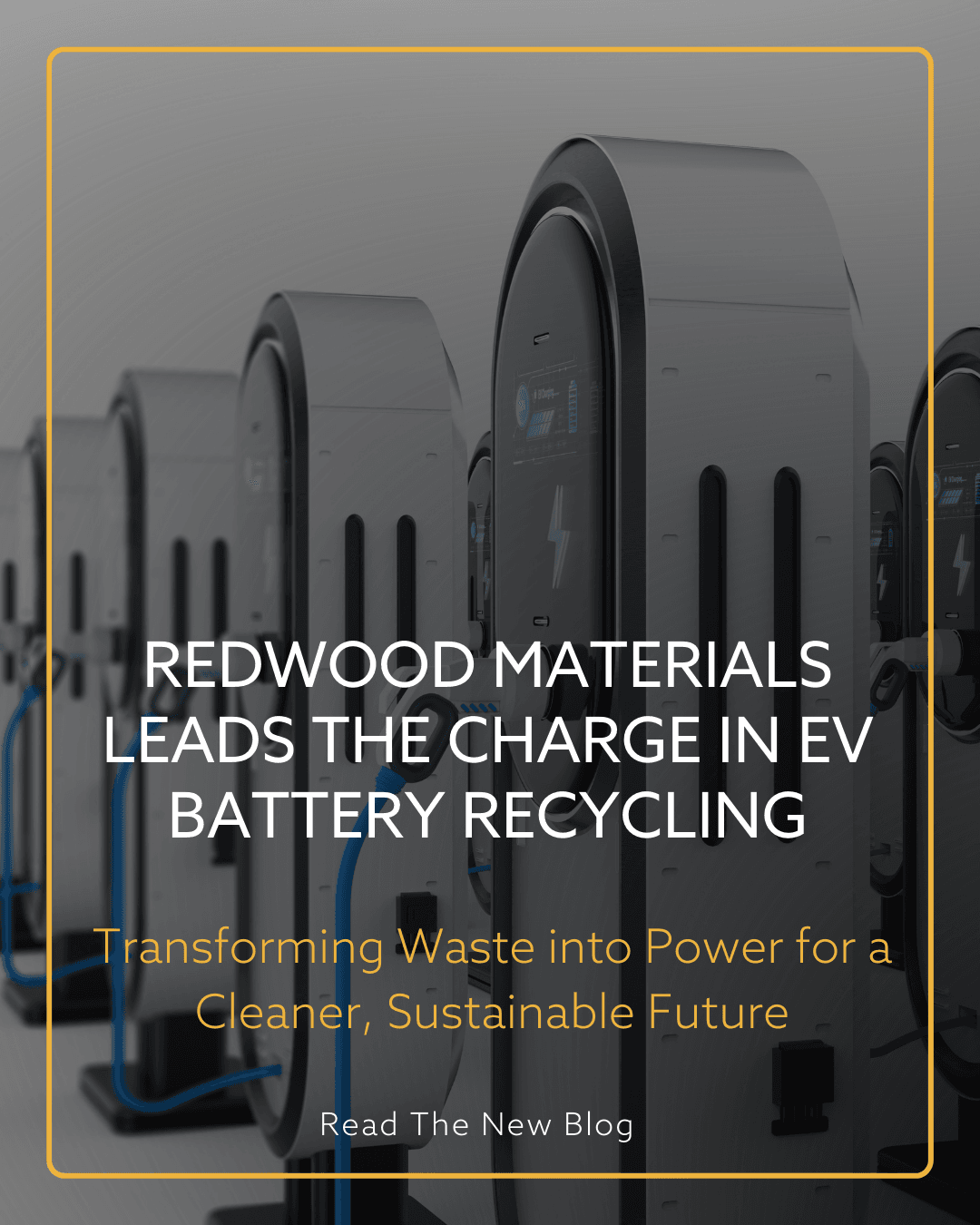
As the electric vehicle (EV) revolution accelerates, the need for sustainable solutions to battery production and recycling becomes increasingly urgent. To break free from America’s reliance on fossil fuels, a robust domestic infrastructure for battery materials is essential—not just for manufacturing but also for responsibly managing end-of-life batteries.
One company spearheading this effort is Redwood Materials, a pioneer in the recycling and reuse of EV batteries. Redwood recently achieved a major milestone by breaking ground on its Cathode Active Material (CAM) facility at its Nevada plant. This marks a significant leap in bolstering domestic battery production using recycled materials, a step critical to reducing dependency on foreign supply chains and minimizing the environmental impact of EV production.
The cathode is a fundamental component of any battery, defining its chemistry and containing a majority of the valuable metals required for its construction. In lithium-ion batteries, for instance, lithium ions shuttle between the cathode and anode during charge and discharge cycles.
The cathode typically holds rare and costly materials such as cobalt, nickel, and lithium. These materials often have problematic origins:
By establishing a domestic source for cathode materials, Redwood aims to reduce the reliance on ethically and environmentally questionable mining practices while mitigating the costs and emissions associated with global material transport.
Redwood’s vision for sustainability includes producing cathode materials with the following composition:
The company’s recycling process involves breaking down used batteries and extracting valuable metals. Unlike traditional recyclers that produce “black mass” (a semi-processed mix of metals), Redwood’s focus extends to refining materials for direct use in manufacturing. This advanced processing enables the production of cathode active materials that can seamlessly integrate into new battery production lines.
Redwood’s Nevada facility is set to house five cathode production buildings, with the first already under construction. This initial facility is expected to produce 20 gigawatt-hours (GWh) of cathode materials annually—enough for roughly 260,000 EVs. Once all five buildings are operational, annual production is projected to reach 100 GWh, sufficient to power 1.3 million EVs.
Key partnerships with industry leaders underscore Redwood’s importance to the EV ecosystem:
Redwood Materials’ innovations not only close the loop on battery production but also establish a blueprint for a sustainable and self-reliant EV supply chain in the United States. By investing in battery recycling and domestic material production, Redwood paves the way for a cleaner and more sustainable transportation future.
For more in-depth insights into this development, visit MotorTrend’s original coverage.
In an era where sustainability is no longer an option but a necessity, ONYX COATING stands at the forefront of innovation with its cutting-edge products such as ceramic coatings and paint protection films (PPF). By integrating advanced technology and eco-conscious practices, ONYX COATING contributes significantly to a sustainable future. Here’s how:
ONYX COATING’s ceramic coatings and PPF create a durable barrier against environmental factors like UV rays, acid rain, and road debris. This protection helps maintain a vehicle’s paint and structural integrity, reducing the need for frequent repairs, repainting, or part replacements. By extending the lifespan of vehicles, the company indirectly reduces waste and minimizes the carbon footprint associated with manufacturing and maintenance.
Traditional car care often involves the repeated use of harsh cleaning agents and polishes that can harm both the environment and users. ONYX COATING’s ceramic coatings create a hydrophobic surface, making vehicles easier to clean with minimal water and without relying on toxic chemicals. This innovation promotes environmentally friendly maintenance practices, conserving resources while reducing chemical runoff.
Vehicles coated with Onyx’s advanced ceramic solutions exhibit reduced surface heat absorption due to their reflective properties. By keeping the car cooler, these coatings contribute to better energy efficiency, particularly in electric vehicles (EVs), which rely on optimized battery performance for air conditioning and other systems.
ONYX COATING prioritizes sustainability in its production processes by using high-quality, non-toxic materials and minimizing waste. By adopting sustainable manufacturing methods, the company ensures that its products meet stringent environmental standards without compromising on quality or performance.
ONYX COATING actively educates vehicle owners and business partners about the importance of choosing sustainable automotive solutions. By offering high-performance protection products, the company empowers consumers to make environmentally responsible choices that align with a greener future.
ONYX COATING is more than just a provider of automotive protection solutions; it is a champion of sustainability in the automotive industry. By leveraging advanced technology in its ceramic coatings and PPF, ONYX COATING delivers products that not only enhance the beauty and durability of vehicles but also support global efforts toward environmental preservation. With a commitment to innovation and eco-conscious practices, ONYX COATING is helping drive the industry toward a more sustainable tomorrow.

Watch as water beads off the deck with our super hydrophobic coatings.

Protect the paintwork from UV damage and keep its vibrant colour despite the conditions.

Let the fear of a rough docking be a thing of the past with a 10H coating.

With minimal maintenance, our products are guaranteed to provide protection for years to come.

With our chemical and contaminant resistant coating, the surface is kept clean. Needing only minor occasional maintenance.

Trusted in 70+ countries, Onyx Coating is the top choice for professionals and car owners seeking premium protection.

Our ceramic coatings adhere to the surface making it resistant to corrosion and oxidation and contamination-free.

Bonds tight with the surtace to maintain a uniform cover and protect the surface evenly.
If you are interested in our products or keen to work with us, send us a message and we will get in contact with you to schedule a quick call or contact us via our email [email protected]
Once this information has been received our team will review the accounts and get into contact with you.
With the world’s first N1 nano coating product under our name, we are one of the most advanced automotive protection providers in the market.
Sign up for the latest offers & promotions




© ONYX COATING 2025. All Rights Reserved.